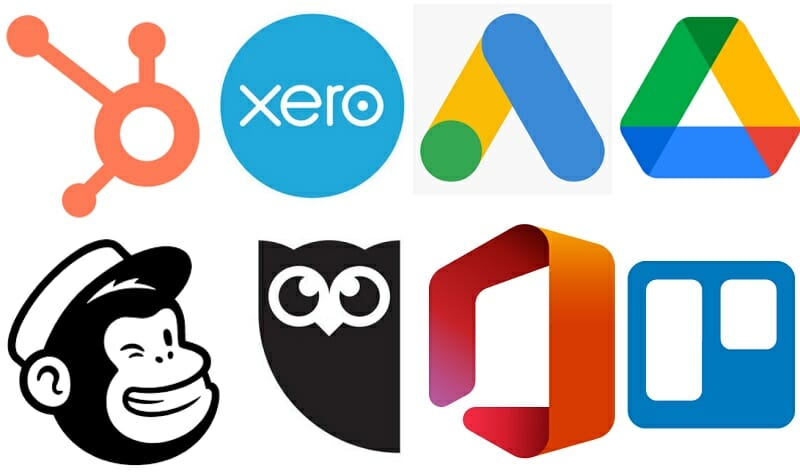Open Source vs. Commercial Software with Examples. What are These?
Software is crucial tool individuals, and businesses use to carry out their daily activities. There are different software types, with the most popular ones used on our smartphones, laptops, or desktop computers.
You interact daily with system and application software examples that may not always be obvious. Your smart TV, ATM, vending machine, and surveillance systems are software examples.
You can categorize this software into two categories based on pricing: commercial software and open-source software.
This blog post will cover commercial software, types and examples, and the core differences between commercial and open-source software.
Let’s get started.
Mục lục bài viết
What is Commercial Software?
The most widely recognized commercial software definition is an application software developed for sales or licensing to end users to aid their commercial activities.
Although similar to proprietary software, commercial software offers several free and open-source software applications tailored to end users. However, this software type has a commercial purpose.
To a large extent, the type or nature of commercial software decides if the software application is to be sold or licensed to end users for commercial purposes.
Commercial software types like video games are sold as commercial products to end users. On the other hand, software as a Service (SaaS) examples are not physical software applications and cannot be sold; hence, they are licensed to end users.
Common examples of commercial software are computer software programs available for sale off the shelves of stores, such as video games, and Microsoft products like the Windows Operating System and Microsoft Office.
Commercial software can also fall under two categories depending on the organization’s size: enterprise software and small business software.

Open Source Software vs. Commercial Software
The general misconception that all open-source software is free is wrong. Although many are free software, several open-source software, depending on the distribution license, requires payment before users can access them.
WordPress is a unique example of a software application that doubles as open-source and commercial software.
1. Modification of the Software’s Source Code
The standout difference between open source and commercial software is that developers have access to the software’s source code as it is made available by the software provider. The source code is open for modifications to the general public.
An open-source implementation is a process by which developers alter the source code of open-source software to suit specific customer needs.
Unlike open-source software, commercial software providers do not allow developers to modify their source code. Only the software providers that created the software have exclusive access to make alterations.
2. Technical Support
Another notable difference between these two software categories is in the area of support.
Open source software applications provide limited technical support to their users, unlike commercial software, which has a structure that guarantees ready technical support to its end users.
Apart from technical support, open-source software users rely solely on support from community channels offered by software companies. They do not enjoy the help of their program vendor that commercial software users do.
3. Customization
Open source versions allow customers to customize and install or update their software. Commercial software users do not enjoy this perk as only vendors are allowed access to customize, install or make updates to these computer software categories.
Examples of Commercial Software
Commercial software exists under a wide variety of types depending on its intended use, with the majority having a copyright notice that does not allow users to modify them.

Here are some of the common commercial software examples:
1. QuickBooks
QuickBooks is an example of accounting software designed and equipped with features to assist small businesses in carrying out various accounting functions.
2. WordPress
WordPress is an example of a website builder estimated to have a market coverage of over half of the world’s websites.
This website builder software offers its users assistance in building a robust and easy-to-adapt website that can be subject to change over time depending on the user’s requirements.
You can choose from a wide array of free and premium themes designed to give your website a unique and professional feel.
3. Microsoft Windows Operating System
Microsoft Windows is an example of a graphical operating system under Microsoft’s full ownership and control.
As a commercial software, Microsoft Windows allows its users to store files, run their software programs, play games, connect to the internet, and watch videos.
4. Adobe Photoshop
Adobe Photoshop is a photo-editing software for users specializing in pixel-based images for print, web, and mobile applications.
With its powerful editing tools, this commercial software allows you to change your photo’s color and imagery into new and improved images.
5. Oracle
Oracle database is an example of a database software designed for enterprise grid computing. It offers the most flexible and cost-effective ways of managing information and other applications through its extensive modular storage servers.
6. PayPal
PayPal is a credit payment processing software that allows you to make online payments and perform a series of transactions on its platform.
As the world’s most prominent payment transaction platform, PayPal allows online store owners to accept payments made through the PayPal portal or credit card payments.
As a commercial software, PayPal handles both the security and processing of compatibility issues of its users, providing them with the best user experience on its platform.
7. HubSpot
HubSpot is a CRM software designed to assist businesses with their marketing needs.
Unlike other CRM and marketing software, HubSpot is complete in its service delivery. It offers its users various packages, from customer relationship management to sales.
As a commercial software, users of HubSpot have to pay the price to gain access to these packages that offer them a robust marketing platform.
8. Xero
Xero is a complete and robust cloud-based accounting software tailored to help users perform all their accounting needs.
Due to its cloud-based nature, users do not need to download or install anything on their office computers to access this platform.
Xero provides users access to the platform from any location as long as an internet connection is available.
9. MailChimp
MailChimp is an example of an email marketing software that helps you create marketing campaigns and automation services for effective email campaigns.
With MailChimp as your commercial software, you can customize your email campaigns and integrate them with several e-commerce platforms for a better and more successful outcome.
10. Hootsuite
Hootsuite is a social media management software that provides tools to listen to your favorite topics and create and schedule your own social media contents to be posted on your social media sites.
This commercial software offers effective reporting and analyzing functions to help build your social media presence on all your social media platforms.
11. AdWords
AdWords is an advertising campaign software that allows you to create search marketing campaigns that are strictly text-based.
With AdWords, users can control their ad expenses as they can choose their marketing campaign based on their budget. You get to select keywords as precise target parameters for your ads.
12. Google Drive
Google Drive is a file sharing and cloud storage software that offers a centralized platform for you to perform all your document management activities.
With Google Drive, you get to create and store a wide variety of document types in the form of slide presentations, spreadsheets, and word documents in the cloud, which grants you access to your stored documents from any location.
13. Office 365
Office 365 is Microsoft’s full suite of document management software that provides users with a way to create, edit and store their documents in the cloud in any of the MS office formats.
Microsoft Word, Excel, and PowerPoint are common format document types found in the Office 365 software.
As a commercial software, Office 365 allows users access to their stored documents from anywhere on up to 5 devices.
14. Trello
Trello is an example of a project management software that doubles as a productivity app that helps you achieve your project goals.
With Trello and its wide range of tools, you can create team boards containing task lists and cards tailored to your individual and team projects. You get to assign deadlines and track the progress of your tasks from their inception until they reach their successful completion stage.
15. Zendesk
Zendesk is a help desk software that offers tools for comprehensive and robust help desk solutions that help users provide the very best customer service to their customers.
Zendesk also provides relevant data on customer engagement to its users that they can work with to improve their overall customer service.
16. Skype
Skype is a virtual meeting platform that offers video and audio calling tools to communicate effectively across a wide range of target audiences.
This commercial software example offers a messaging platform to help you send messages to various intended receivers across the globe.
Commercial businesses use Skype to guarantee regular communication among teams. They use it to create channels to keep in touch with customers and get feedback on retail products and services pitched to them.
Types of Commercial Software
Commercial software comes in different types and opens you up to various options. Deciding on which commercial software to use for your company depends on your company’s size, specific needs, and the expected function of the commercial software.
Here are the common types of commercial software that are used in businesses:
- Accounting Software: This commercial software type is tailored to help businesses deal with their accounting transactions in an organized fashion. QuickBooks, Xero, FreshBooks, and Wave are common examples.
- Responsive Website Builders: They provide users access to features and templates that assist them in building their websites. WordPress, Squarespace, and Shopify are examples of website building software.
- Payment Transaction Software: Paypal and Stripe are examples of payment transaction software. This software allows its users to transact online, irrespective of their location.
- Marketing Software: HubSpot is an example of marketing software. Marketing software helps businesses deal better with their marketing needs by creating effective strategies and means of engaging with the targeted market.
- Document Management Software: This commercial software helps you manage your document better. You can use it as a means of storing your documents. DropBox, Office 365, and Google Drive are examples of document management software.
Was This Article Helpful?
5.0
Rated 5 out of 5
5 out of 5 stars (based on 3 reviews)
Your review
Your overall rating
Title of your review
Your review
Your name
Your email
This review is based on my own experience and is my genuine opinion.











